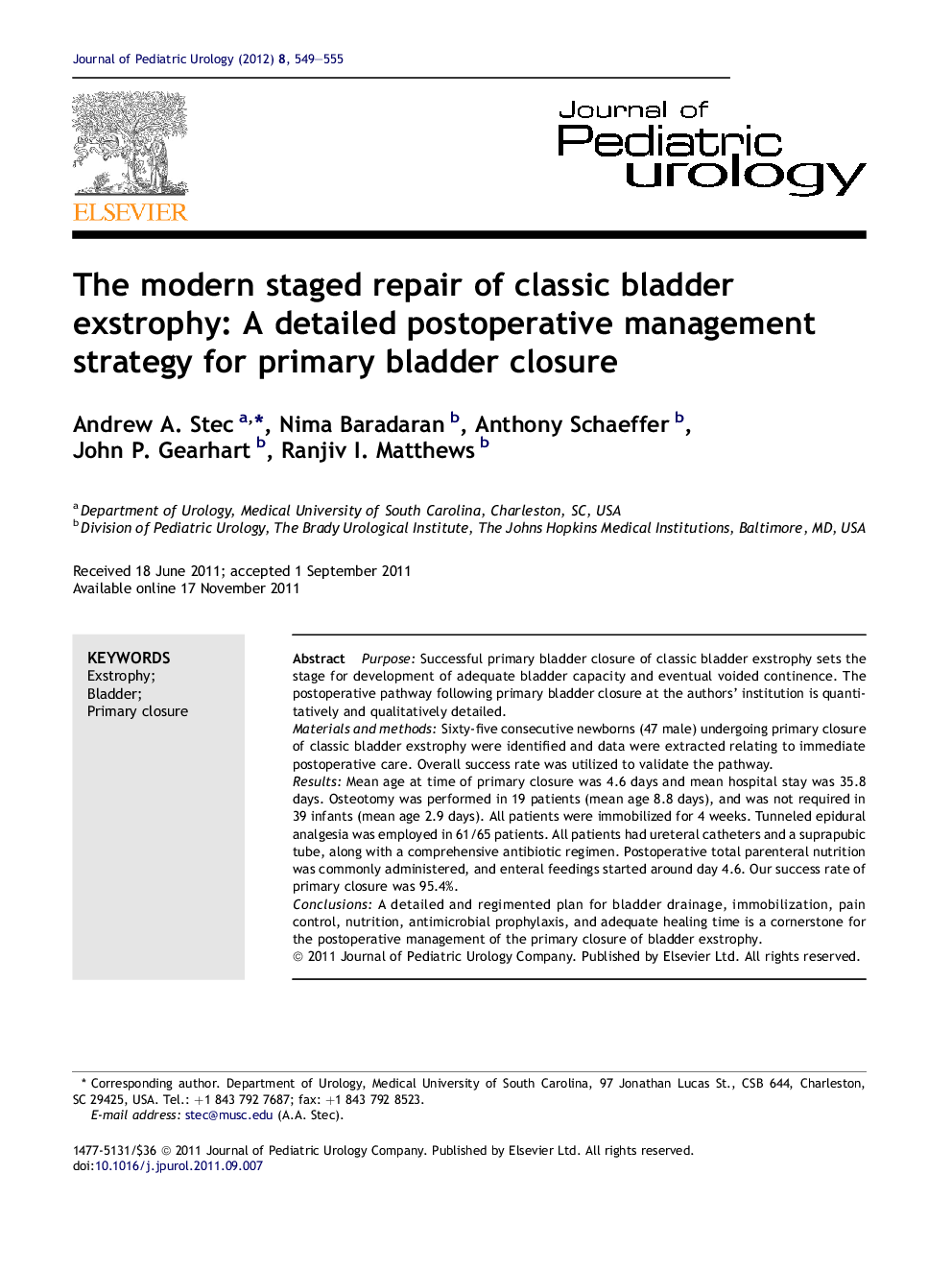| کد مقاله | کد نشریه | سال انتشار | مقاله انگلیسی | نسخه تمام متن |
|---|---|---|---|---|
| 4162508 | 1274282 | 2012 | 7 صفحه PDF | دانلود رایگان |

PurposeSuccessful primary bladder closure of classic bladder exstrophy sets the stage for development of adequate bladder capacity and eventual voided continence. The postoperative pathway following primary bladder closure at the authors’ institution is quantitatively and qualitatively detailed.Materials and methodsSixty-five consecutive newborns (47 male) undergoing primary closure of classic bladder exstrophy were identified and data were extracted relating to immediate postoperative care. Overall success rate was utilized to validate the pathway.ResultsMean age at time of primary closure was 4.6 days and mean hospital stay was 35.8 days. Osteotomy was performed in 19 patients (mean age 8.8 days), and was not required in 39 infants (mean age 2.9 days). All patients were immobilized for 4 weeks. Tunneled epidural analgesia was employed in 61/65 patients. All patients had ureteral catheters and a suprapubic tube, along with a comprehensive antibiotic regimen. Postoperative total parenteral nutrition was commonly administered, and enteral feedings started around day 4.6. Our success rate of primary closure was 95.4%.ConclusionsA detailed and regimented plan for bladder drainage, immobilization, pain control, nutrition, antimicrobial prophylaxis, and adequate healing time is a cornerstone for the postoperative management of the primary closure of bladder exstrophy.
Journal: Journal of Pediatric Urology - Volume 8, Issue 5, October 2012, Pages 549–555